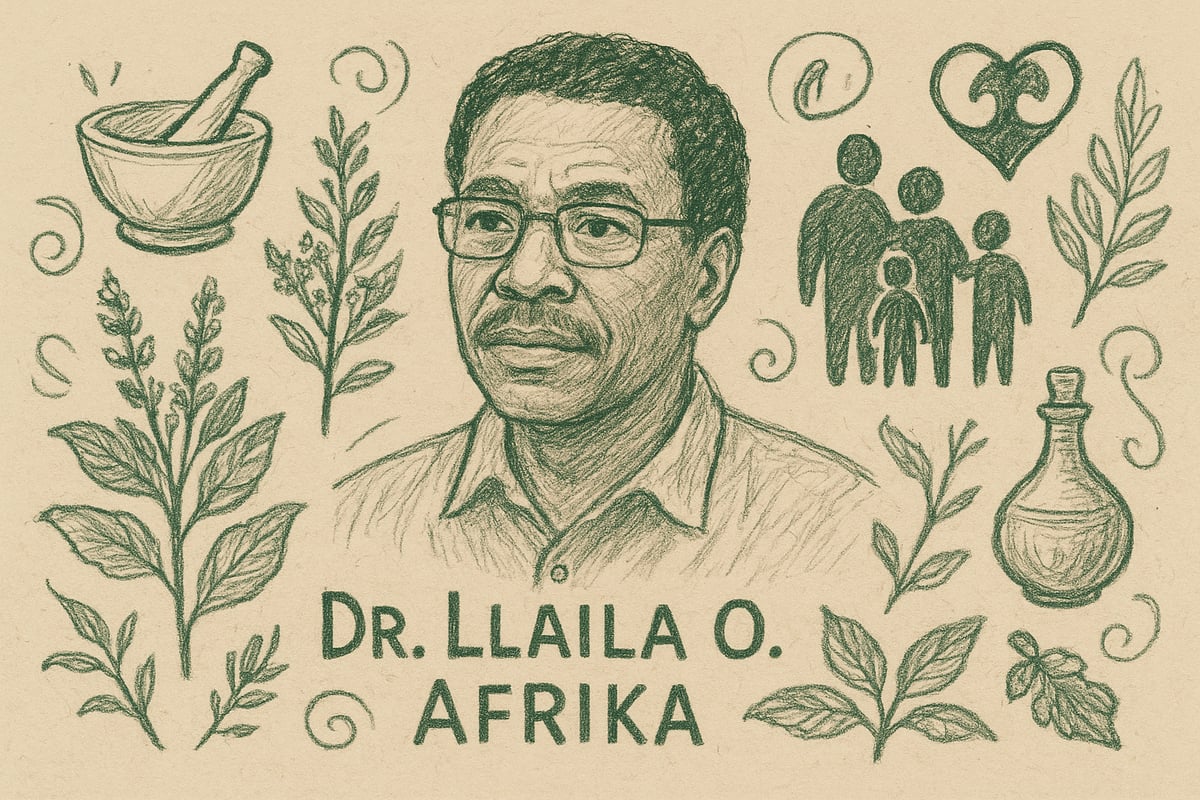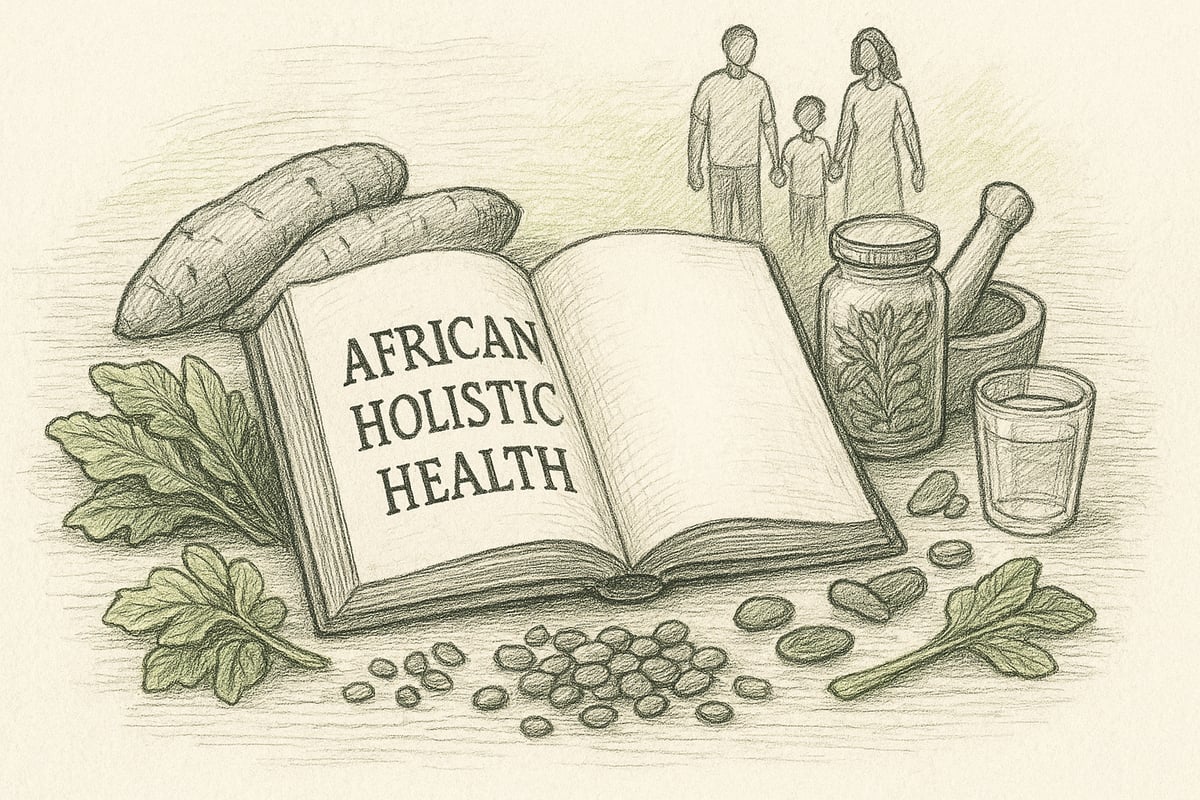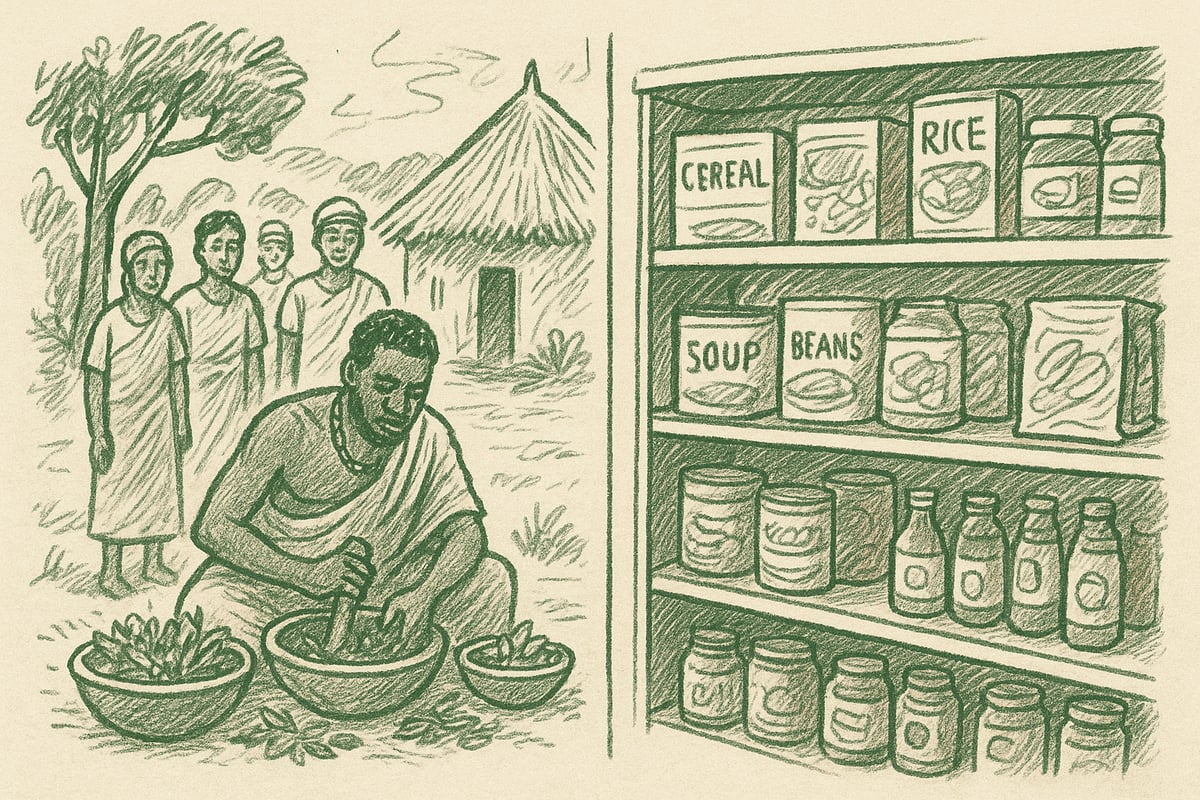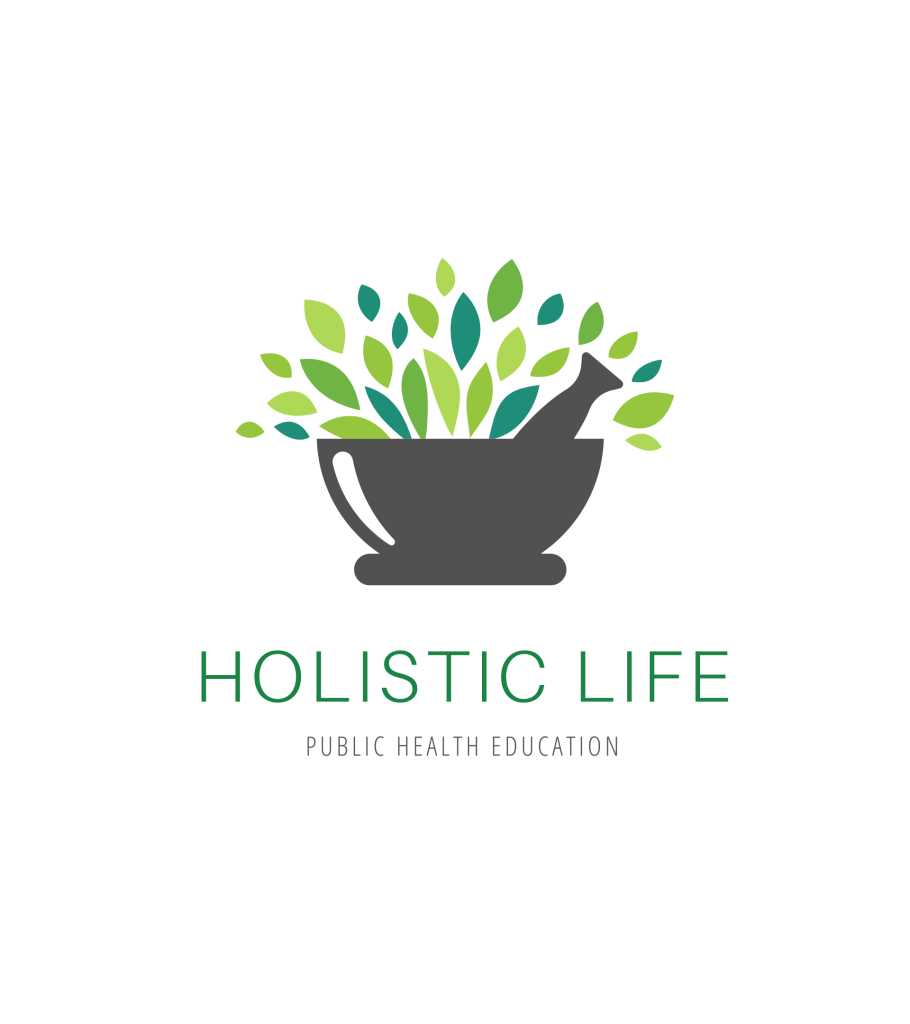Are you searching for a transformative wellness approach for 2025? The african holistic health book offers a powerful path, blending ancestral wisdom and scientific insight to inspire total well-being.
This guide explores how the african holistic health book stands out with its unique African-centered perspective, focusing on mind, body, and spirit. You will discover its origins, core philosophies, and practical steps for daily integration.
Ready for holistic transformation? Dive in to learn how the principles in this book can spark lasting change and empower your wellness journey.
The Origins and Author of African Holistic Health
Understanding the roots of the african holistic health book begins with its visionary creator and the unique historical context that shaped its message. This section explores the pioneering work of Dr. Llaila O. Afrika, the motivations behind the book, its evolution, and the far-reaching impact it has had across communities.

Llaila O. Afrika: Pioneer of African-Centered Wellness
Dr. Llaila O. Afrika was a leading figure in holistic health, blending traditional African healing with modern wellness science. His background in nutrition, naturopathy, and clinical research established him as a trusted authority in the field. Throughout his life, he educated both laypeople and professionals, making the african holistic health book a cornerstone of his work.
He authored several influential texts, including "Nutritional Destruction of Black People" and "Melanin: What Makes Black People Black." His teachings reached audiences worldwide, inspiring greater awareness of the links between ancestry, health, and healing. For more about his extensive contributions, see Dr. Llaila O. Afrika’s Biography.
Dr. Afrika's legacy continues to shape African and global wellness communities, fostering a sense of empowerment and self-knowledge.
Why African Holistic Health Was Written
The african holistic health book was written to address major gaps in mainstream health literature. Dr. Afrika saw a need for culturally relevant health solutions that honored African traditions and addressed the unique needs of people of African descent.
Historically, European medical paradigms often neglected or dismissed African healing wisdom. This book aimed to empower readers by reconnecting them to ancestral practices and offering practical guidance for holistic living. Its mission resonates with anyone seeking to reclaim health through a lens of cultural pride and self-determination.
Importantly, the african holistic health book also speaks to a broader audience, showing how African-centered wellness principles can benefit people of all backgrounds.
Evolution of the Book: Editions and Updates
First published in the early 1980s, the african holistic health book has seen multiple editions and updates over the years. Each new version has expanded on its core teachings, reflecting advances in health science and feedback from a growing community of readers.
Notable updates include expanded sections on the dangers of commercial foods, modern dietary challenges, and new herbal protocols. The book remains current by addressing contemporary issues such as processed food risks and environmental toxins.
Community input and reader experiences have shaped the evolution of the african holistic health book, ensuring its ongoing relevance and accessibility.
The Book’s Reception and Impact
Since its release, the african holistic health book has achieved remarkable popularity within holistic health circles. Sales have soared, and it is frequently recommended by health professionals, educators, and wellness organizations.
The book is used in academic courses, community health programs, and wellness workshops. Reviews from diverse readers highlight its transformative impact, practical advice, and cultural significance.
Many credit the african holistic health book with inspiring the rise of Afrocentric health movements and empowering individuals to take charge of their well-being. Its influence continues to grow as more people seek holistic, culturally-rooted approaches to health.
Core Principles of African Holistic Health
Understanding the core principles of the african holistic health book is essential for anyone seeking to transform their wellness journey. These foundations combine ancestral wisdom, community values, and a holistic view of the mind, body, and spirit. Each principle guides readers toward a more balanced, empowered, and culturally rooted approach to health.

The African-Centered Approach to Wellness
The african holistic health book is grounded in an African-centered approach that prioritizes balance, harmony, and collective wellbeing. Unlike Eurocentric models that often separate mind, body, and spirit, this philosophy fuses them into a unified whole.
This approach draws on ancestral knowledge, traditional healing, and the lived experiences of African communities. For a deeper understanding of holism, the concept at the heart of this perspective, reference is often made to Holism and Evolution by Jan Smuts, which helps contextualize the holistic mindset in health.
The african holistic health book illustrates these ideas through stories, case studies, and practical advice, showing how ancestral wisdom can be applied to modern life.
Holistic Healing: Beyond Symptom Management
A standout feature of the african holistic health book is its focus on addressing root causes, not just symptoms. This principle encourages looking at the whole person and their environment rather than isolating ailments.
Prevention, self-diagnosis, and lifestyle changes are emphasized. The book provides case studies where individuals experience lasting health improvements by shifting their diet, environment, and mindset.
Unlike reductionist approaches, this holistic method integrates nutrition, movement, and spiritual practices to restore balance. Readers are encouraged to become active participants in their healing journey, not passive recipients of care.
Physiological and Psychological Differences
The african holistic health book explores the unique physiological and psychological characteristics found among people of African descent. Dr. Llaila O. Afrika’s research highlights how genetics, environment, and culture influence nutritional and health needs.
This perspective has sparked important discussions about personalized care and the necessity for culturally relevant health advice. The book presents data on disease prevalence, offering tailored recommendations for nutrition and lifestyle.
By acknowledging these differences, the african holistic health book helps readers make informed choices that respect their heritage and individual needs.
The Role of Community and Family
Community and family are central pillars in the african holistic health book’s philosophy. Wellness is not viewed as an individual pursuit but a collective responsibility. The book shares strategies for building supportive networks, participating in group health activities, and creating family rituals that foster wellness.
Examples include shared meal preparation, community gardens, and group meditation. These practices not only improve health outcomes but also strengthen cultural bonds and resilience. The african holistic health book provides guidance on starting wellness circles and leveraging community power for lasting change.
Spirituality and Healing
Spirituality is woven into every aspect of the african holistic health book. Healing rituals, meditation, and energy work are integrated with scientific approaches to create a comprehensive wellness routine. The book explores African spiritual systems and their applications in daily health practices.
Readers find testimonials describing profound healing through spiritual connection and ancestral practices. The african holistic health book guides readers in balancing science and spirituality, encouraging a daily routine that feeds both body and soul. This integration is key to holistic, sustainable health.
Practical Applications: How to Use African Holistic Health
Unlocking the practical wisdom of the african holistic health book means transforming philosophy into daily action. Whether you are new to holistic wellness or seeking to deepen your practice, these applications offer clear, culturally grounded steps for vibrant health.

Nutrition and Dietary Guidance
The african holistic health book places nutrition at the heart of wellness. It recommends a return to whole, plant-based foods common to African heritage diets, emphasizing leafy greens, root vegetables, legumes, and grains like millet or sorghum.
Processed foods, commercial additives, and excess animal products are discouraged. Instead, the book encourages meal planning centered on traditional dishes, with sample meal plans that include balanced portions and seasonal produce.
For modern lifestyles, the african holistic health book suggests:
- Building your pantry with staple African foods
- Swapping processed snacks for fruits and nuts
- Preparing meals in advance to avoid convenience foods
A table from the book might compare recommended vs. discouraged foods:
| Recommended | Discouraged |
|---|---|
| Yams, okra, kale | Processed meats |
| Black-eyed peas | White flour |
| Millet, quinoa | Sugary drinks |
Readers often report increased energy and better digestion after adopting these guidelines, showing the book’s effectiveness in fostering long-term health.
Herbal Remedies and Natural Treatments
Herbal healing is a cornerstone of the african holistic health book. Drawing on ancestral knowledge, the book details key herbs—such as burdock root, dandelion, and hibiscus—for cleansing, immune support, and disease prevention.
Preparation and safety are stressed, with clear instructions for making teas, tinctures, and poultices. The book contrasts these remedies with Western herbalism, highlighting the importance of cultural context. For a deeper understanding of this tradition, you can explore Yorùbá Medicine Practices, which aligns closely with the book’s approach.
Practical steps include:
- Identifying herbs for your specific needs
- Sourcing quality, organic botanicals
- Keeping a journal to track your body’s responses
Success stories in the african holistic health book show positive outcomes in managing common ailments like colds, digestive discomfort, and skin issues using natural remedies.
Holistic Sex Laws and Reproductive Health
The african holistic health book introduces holistic sex laws, connecting sexuality, vitality, and overall wellness. It advocates self-awareness and education to break harmful taboos, supporting reproductive health through balanced nutrition and lifestyle.
Key practical steps include:
- Regular self-assessment for reproductive health
- Incorporating herbs and foods that support hormonal balance
- Open, informed conversations about sexuality within families
By following these principles, readers can foster both physical and emotional wellbeing, as highlighted in the book’s case studies.
Self-Diagnosis and Preventive Care
Empowerment is central to the african holistic health book, which provides tools for self-diagnosis and prevention. The book offers checklists and symptom trackers, enabling early detection of imbalance before illness occurs.
Preventive routines recommended include:
- Daily stretching and movement
- Mindful hydration and rest
- Periodic self-assessment using book templates
Many users of the african holistic health book report that early interventions—like dietary tweaks or herbal cleanses—helped them avoid chronic issues. Tracking progress in a wellness journal makes it easier to celebrate improvements and identify areas for further growth.
Detoxification and Cleansing Protocols
Detoxification is a vital practice in the african holistic health book, blending physical and energetic cleansing rooted in African traditions. The book provides step-by-step protocols using specific foods, herbs, and rituals to support the body’s natural elimination processes.
A typical protocol might include:
- Fasting or mono-diets with fruits and vegetables
- Herbal teas for liver and kidney support
- Breathing exercises and meditation for energetic clarity
Safety is emphasized, with guidance on how often to cleanse and when to seek professional advice. Reported benefits include increased mental clarity and improved digestion, reinforcing the book’s holistic approach.
By applying these practical steps from the african holistic health book, you can create a personalized wellness routine that honors both tradition and modern needs.
Decolonizing Health: Challenging Western Paradigms
Exploring the decolonization of health is central to the african holistic health book. This section breaks down how the book critiques modern dietary trends, advocates for reclaiming indigenous healing, addresses systemic inequities, and demonstrates global relevance. By examining these themes, readers gain clarity on why the african holistic health book stands apart as a transformative resource.

Critique of Commercial Foods and Modern Diets
The african holistic health book takes a strong stance against processed and commercial foods. Dr. Afrika details how the shift from traditional diets to modern, packaged foods correlates with rising disease rates in African and global communities. He links the introduction of refined sugars, additives, and preservatives to chronic illnesses.
| Traditional African Diet | Modern Commercial Diet |
|---|---|
| Whole grains | Refined flours |
| Fresh vegetables | Canned/processed foods |
| Natural sweeteners | Refined sugars |
The book encourages readers to reclaim ancestral foodways, emphasizing fresh, unprocessed ingredients. By returning to traditional eating patterns, the african holistic health book argues, individuals can prevent disease and restore balance.
Reclaiming Traditional African Healing
Colonialism disrupted indigenous health knowledge, but the african holistic health book aims to revive these original practices. Dr. Afrika stresses the importance of reconnecting with ancestral wisdom, including herbalism, spiritual rituals, and community healing.
For instance, the book highlights the role of Traditional Healers in Southern Africa as keepers of holistic health traditions. It provides strategies for integrating these practices with modern life, such as learning about local medicinal plants or participating in cultural rituals.
Readers are encouraged to explore both old and new wisdom, creating a foundation for health that honors identity and heritage. This approach, the african holistic health book asserts, empowers individuals and strengthens community bonds.
Addressing Systemic Inequities in Healthcare
The african holistic health book does not shy away from discussing healthcare disparities. Dr. Afrika addresses how systemic racism and cultural misunderstanding contribute to poor outcomes for people of African descent. He challenges readers to become self-advocates, using knowledge from the book to navigate and question mainstream healthcare systems.
The book provides examples of grassroots initiatives, where communities organize their own health education and support networks. By emphasizing self-diagnosis, preventive care, and collective action, the african holistic health book offers a blueprint for overcoming institutional barriers.
The Global Relevance of African Holistic Health
While rooted in African traditions, the african holistic health book offers universal principles. Its holistic approach—balancing mind, body, and spirit—resonates with readers from diverse backgrounds. Testimonials highlight how the book’s actionable steps have inspired wellness journeys worldwide.
Dr. Afrika’s teachings encourage cross-cultural learning and respect, inviting all to explore the power of holistic healing. The book’s influence is seen in the growing global movement toward integrative, culturally aware healthcare.
Step-by-Step: Integrating African Holistic Health into Your Life
Embarking on your wellness journey with the african holistic health book requires thoughtful integration of its principles into everyday life. By following these clear steps, you can build a strong foundation for holistic health, rooted in African-centered wisdom and practical action.
Step 1: Assess Your Current Health and Mindset
Begin with honest self-reflection. The african holistic health book emphasizes understanding your baseline before making changes. Use self-diagnosis tools from the book to explore physical, mental, and spiritual health.
Ask yourself:
- What patterns or symptoms do I notice?
- Are there recurring challenges in my well-being?
- What are my intentions for holistic growth?
Record your answers in a wellness journal. This assessment phase helps you identify root causes and set realistic goals, ensuring your journey starts on a solid foundation.
Step 2: Transition to African-Centered Nutrition
Adopting the nutritional wisdom outlined in the african holistic health book does not require abrupt changes. Gradually introduce recommended foods, such as leafy greens, yams, millet, and fresh fruits, while phasing out processed items and commercial additives.
Sample steps:
- Build a pantry with whole, plant-based staples.
- Swap refined grains for traditional African grains.
- Plan simple meals using recipes from the book.
If you seek more recipes or guidance, consider connecting with EWorld for resources and supportive communities. These dietary changes can powerfully influence your energy and overall wellness.
Step 3: Incorporate Herbal and Natural Remedies
Explore herbal protocols recommended in the african holistic health book to address specific health concerns. Start by identifying herbs that align with your needs, such as burdock for detoxification or hibiscus for cardiovascular health.
Key practices:
- Source herbs from reputable suppliers.
- Prepare teas or infusions as described in the book.
- Track your body's response and adjust as needed.
Combining herbal remedies with other holistic practices can amplify results and foster balanced wellness.
Step 4: Establish Daily Rituals for Mind, Body, and Spirit
Consistency is vital. The african holistic health book advocates for morning and evening routines that nurture all aspects of self. These may include meditation, gentle movement, prayer, and mindful breathing.
Consider creating a healing environment at home:
- Set aside a quiet space for reflection.
- Integrate family rituals, such as group gratitude or stretching.
- Balance work, rest, and play with intention.
Daily rituals strengthen your connection to self and ancestral wisdom, supporting sustainable health.
Step 5: Engage in Community and Collective Wellness
Wellness flourishes within community. The african holistic health book encourages joining or forming wellness circles to share knowledge and support. Participate in group cleanses, challenges, or educational sessions.
Ways to engage:
- Join online forums or local meet-ups.
- Share resources and experiences.
- Collaborate on community health projects.
Collective action not only enhances personal outcomes but also empowers others on their paths to holistic health.
Step 6: Monitor Progress and Adjust Holistically
Ongoing reflection is crucial. Use templates from the african holistic health book to keep a wellness journal, noting improvements, setbacks, and emerging needs.
Tips for monitoring:
- Celebrate milestones, no matter how small.
- Seek guidance if progress stalls.
- Continue learning through book clubs or online resources.
Regular review allows you to adapt your approach, ensuring your wellness journey remains dynamic and effective.
Comparing African Holistic Health to Other Wellness Approaches
Exploring the african holistic health book reveals a wellness philosophy that stands apart from conventional and even many alternative models. To understand its unique value, it is helpful to compare it with both Western and other indigenous systems, consider its ideal audience, and offer practical advice for readers seeking to maximize its benefits.
How It Differs from Western Holistic Models
The african holistic health book emphasizes ancestry, collective wellness, and spiritual integration, which often differ from Western holistic approaches. While Western models typically focus on individual health and scientific validation, the African-centered model incorporates ancestral wisdom, community, and spirituality.
| Feature | African Holistic Health Book | Western Holistic Models |
|---|---|---|
| Focus | Ancestry, community | Individual, science |
| Spirituality | Central | Sometimes included |
| Diet/Nutrition | Traditional, plant-based | Varied, often generalized |
| Diagnosis | Mind, body, spirit balance | Physical and mental health |
This model's unique diagnostic and treatment philosophies offer new perspectives for those seeking comprehensive wellness.
Overlap with Other Indigenous Healing Traditions
The african holistic health book shares several principles with indigenous systems worldwide. Both emphasize holistic healing, use of medicinal plants, and ritual practices. For example, herbalism and energy work are common threads in Native American, Ayurvedic, and African traditions.
However, each tradition has its own unique herbs, ceremonies, and spiritual beliefs. Cross-cultural studies highlighted in the african holistic health book show that integrating diverse practices can enhance outcomes, provided cultural respect is maintained.
Hybrid wellness practices are emerging, blending African and other indigenous methods. These approaches often yield powerful results, with comparative studies supporting their efficacy for chronic conditions.
Who Should Read African Holistic Health?
The african holistic health book is ideal for people of African descent seeking culturally resonant guidance, but its reach extends further. It benefits:
- Holistic practitioners wanting to diversify their toolkit
- Wellness seekers with chronic or lifestyle-related conditions
- Families aiming to improve collective health
- Community leaders providing group wellness support
Readers from all backgrounds, including beginners and experienced professionals, share testimonials about the book’s transformative impact. The african holistic health book supports both personal and community-level healing journeys.
Where to Buy and How to Get the Most from the Book
To access the african holistic health book, consider reputable retailers like ThriftBooks or EWorld. Choose the latest edition for updated content and expanded resources.
Tips for maximizing your experience:
- Join or start a book club for discussion and accountability
- Use companion workbooks or online communities for support
- Set a study schedule, focusing on one chapter at a time
- Apply the book's self-assessment tools regularly
By engaging with the african holistic health book intentionally, readers unlock its full potential for lifelong wellness.
As you explore the transformative insights of African holistic health, you might find yourself eager to take the next step on your wellness path. The book’s principles are even more impactful when you’re connected to a community that shares your commitment to balance, ancestral wisdom, and holistic living. If you’re ready to deepen your journey, learn from others, and stay updated with practical tools and guidance, I invite you to Join Our Holistic Community for Updates. Together, we can create lasting change in our health and lives—one empowered choice at a time.
